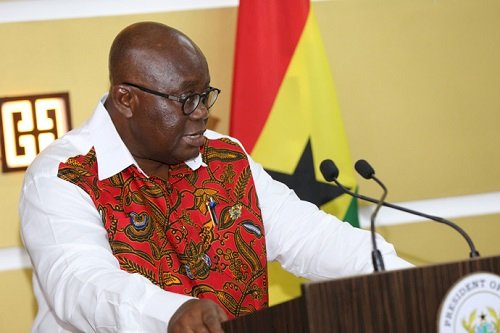Visionary, focused political leadership can transform West Africa – Akufo-Addo

President Nana Addo Dankwa Akufo-Addo on Monday noted that West Africa cannot make the bold transforming changes it needs to make without visionary political leadership.
“We need leadership that is focused on the region, and not on individual countries. The European Union took off because the political leadership of France and Germany decided to make it work. Once the political will is evident, we can then work together to make ECOWAS a true regional community,” he said.
The President made this known when he opened the four-day annual International Conference of the ECOWAS Court of Justice in Accra.
Under the theme: “Economic Integration of West Africa: Challenges and Prospects,” this year’s event, the seventh since its introduction by the Court in October 2004, will appraise the legal aspects of the economic integration agenda of ECOWAS, the enabling legal environment, the community legal order, the challenges and prospects for the realization of the community objectives and the role of the ECOWAS Court of Justice in the integration process.
Some 142 participants, including Judges and staff of the Court, Chief Justices of ECOWAS Member States, members of the academia, Heads of ECOWAS Institutions, Special Representatives of ECOWAS in Member States, Heads of National Units of ECOWAS Member States and development partners, are participating in the four day conference.
President Akufo-Addo said it was imperative that leaders of ECOWAS states show strong political will to the Bloc an economic and political success to enhance the welfare of the 350 million people of West Africa.
He said it was also extremely important there was focused leadership to enhance success of the region’s integration project, especially at the dawn of the coming into force of the African Continental Free Trade Area.
Noting that the ECOWAS was “somewhat peripheral to the lives of most West Africans,” the President stressed that West Africa would be a more effective bloc and have a stronger political voice, if they came together.
“Today, however, while the EU is central to the lives of Europeans, ECOWAS is, still, somewhat peripheral to the lives of most West Africans. And it is not for the lack of plans or even rules and regulations. It is simply that the political will to make integration real has been less evident than in Europe,” he said.
Thus, President Akufo-Addo called on ECOWAS member states to comply with the judgments of the Community’s Court of Justice in order to accelerate the Bloc’s integration process.
He noted that the process of integration could be expedited if ECOWAS states mainstreamed the rule of law, democracy and good governance in the development of the project.
President Akufo-Addo held that since the Bloc’s regional integration process involved the provision of the necessary normative framework and the regional dispute resolution mechanism, the ECOWAS Court of Justice “must be empowered to play this role as a principal legal organ of the community.”
He stated that since the Community’s Court had the exclusive responsibility for the interpretation and application of the ECOWAS revised treaty, member states must be encouraged to refer questions of interpretation of the ECOWAS revised treaty and other community text to the Court to ensure uniformity in the interpretation of the treaty and the text.
The President said it was essential for Member States to comply with judgements of the Court, saying, “the ECOWAS Revised Treaty provides that judgements of the Court are binding on all Member States, institutions, corporate bodies and individuals.”
Indeed, the Protocol on the Court, as amended, gives Member States the sole responsibility for the enforcement of the judgements of the Court, in accordance with their Rules of Civil Procedure. It also requires each Member State to appoint a competent national authority for the enforcement of the judgements of the Court.
The President who was not enthused that only five member states were currently enforcing judgments of the Court of Justice, announced that he had designated the Office of the Attorney General as the competent national authority for the enforcement, in Ghana, of the judgments of the ECOWAS Court of Justice.
“All other Member States must quickly do the same…What makes ECOWAS better will make each of our individual countries better and more prosperous. It is time for those who believe in regional integration to give enthusiastic support to Community decisions, and inspire confidence and integrity in the structural organs of ECOWAS, such as the ECOWAS Court of Justice. Our people deserve no less, and the dream of prosperity will be within our grasp.”
The Conference will also address the need for rule of law, promotion and protection of human rights, democracy and good governance and measures for conflict prevention and management in order to provide the enabling peaceful environment for economic development.
Over 30 papers will be presented at the conference. The papers will examine the region’s flagship protocol on the free movement of persons, goods and services as an important factor in integration; the basic infrastructure for economic integration as well as Economic integration as a factor for regional stability.
